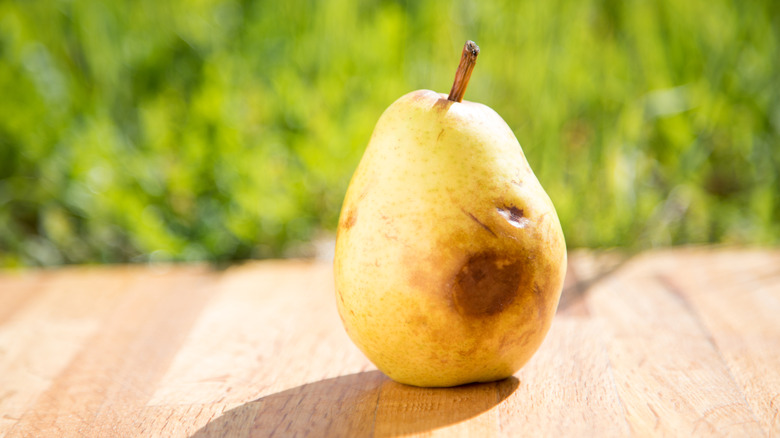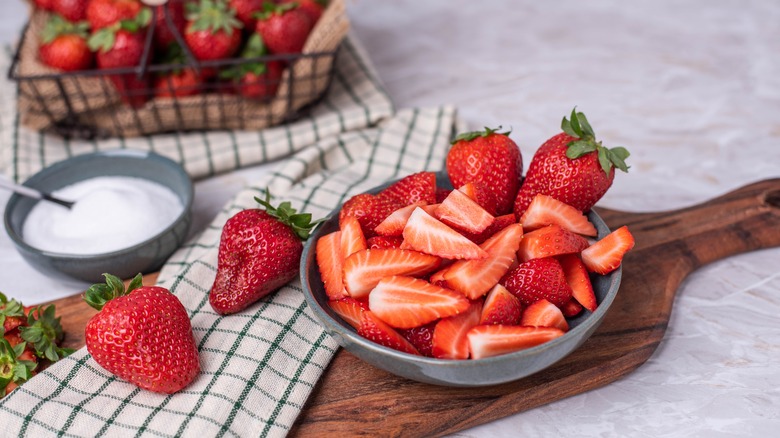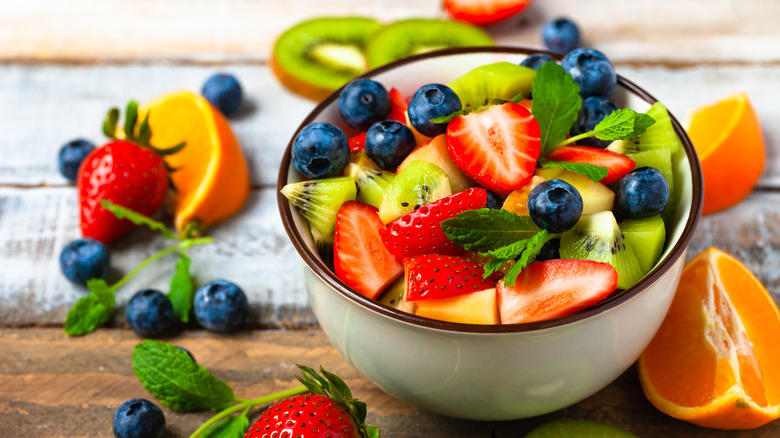How To Use Bruised Fruit In A Salad Without Anyone Noticing
No matter how short the journey from the grocery store or farmers market to your kitchen, transportation can prove perilous for soft fruits like pears, peaches, and bananas. Try as you can to carefully cradle them, you may arrive home to find your fruit bruised and blemished. Other times, you manage to transport everything in pristine condition, only to discover days later that you bought too much and your perfect produce has started to over-ripen. In either situation, the solution is to make a fruit salad. If you're planning to serve this salad to guests, there are techniques that will help hide any imperfections: maceration and seasoning.
By macerating your fruit, you can lean into the softness of any overly ripe fresh produce by soaking it in sugar or a liquid, such as vinegar or simple syrup. Sprinkling salt, sugar, or your favorite blend of spices over your fruit is also useful for improving flavor.
The art of macerating imperfect fruit
While the word "maceration" may sound intimidating, it is a simple process. To start, wash and dry your fruit as you normally would. Using a knife and cutting board, dice the fruit. You can leave edible peels on — unless you prefer otherwise. Transfer the diced produce to a bowl and cover it all with the liquid of your choice (think honey, syrups, balsamic, or even liqueur) or sugar. What you use to macerate the fruit depends on the flavors you'd like to bring out in your salad. Sugar, syrups, and honey will highlight the sweetness of the fruit while liquor or vinegar can add herbal, earthy, or acidic notes.
You can also add layers of flavor to the dish and use up especially bruised or overripe fruit by blending it into a tangy dressing for your fruit salad. If your not-so-fresh fruit could really use some help, you can also add frozen juice concentrate to your fruit salad for a more intense flavor.
Seasoning your fruit salad
There are so many international fruit salads to try, and it can be fun to take inspiration from other cultures not only when choosing which fresh produce to include, but also how to season it. Add layers of complexity to your fruit salad while similarly boosting the flavors of less-than-perfect fruit, add a sprinkle of salt, sugar, or spices.
You can opt to add seasoning to fresh fruit or macerated fruit. Salt and sugar will emphasize the flavors of the fruit itself, but spices offer the dual benefit of adding a little something extra to the flavor profile of your salad and drawing attention away from any bruising. Classic baking spices like cinnamon and nutmeg give off a pleasant aroma while hot spices like red or black pepper create a nice warming experience.
Another option is to macerate the too-ripe fruit and mix in some fresh, crisp counterparts. This technique adds a pleasant contrast of consistencies. The soft macerated fruit will make the texture of the fresh fruit seem pleasantly firm by comparison.



